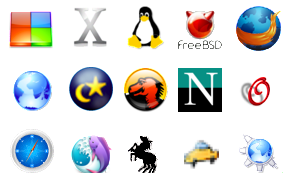Why I Need to Use Three Web Browsers Everyday
 Image via Wikipedia
Image via WikipediaWith new versions of web browsers coming out regularly, including the heralded Firefox 4 (released on Tuesday), I am excited but certainly not holding my breath that the next version will be the one to rule them all. As it stands, I open multiple browsers daily, as each has their own strengths and weaknesses. On top of that, certain web applications or websites work better with specific browsers, and I have no choice as these applications are essential for my work as a teacher, a staff developer, a blogger, and recently, an editor.
So what do I do? Upon powering up my PC at work, I'll double click on Internet Explorer (IE), Mozilla Firefox, and Google Chrome. At home, I'll substitute Safari for Explorer as Macs have long since abandoned support for IE. I'll use Explorer at work and on a home PC since Outlook Web Access allows for drag and drop and other features only in IE, and our gradebook program went through a lack of support for Firefox for a short time. As a Google Certified Teacher and Apps Trainer, I rely on Google Apps regularly, and their Chrome browser naturally works best. Chrome has also established itself as the fastest browser in my mind, though I am sure that the competition is closing the gap if they haven't already.
Those Mac owners who work solely with what ships in the box will likely be surfing the web via Safari. Admittedly, the browser has helped me on occasions when the release candidate of Firefox wasn't cooperating and the website I needed to use was not supported by Chrome. Still, one might be tempted to try either Chrome or Firefox to at least see what life is like away from the world of Apple.
For more thoughts on Teaching and Learning Technology, please consider subscribing to the RSS feed or through email.



Comments